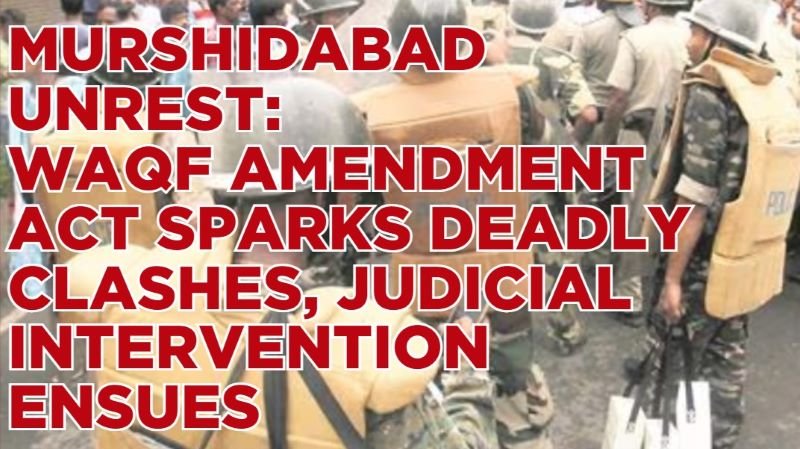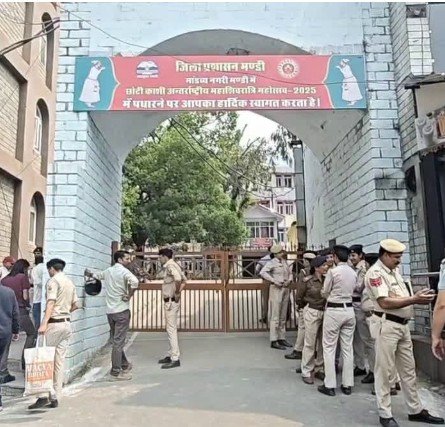
Murshidabad Unrest: Waqf Amendment Act Sparks Deadly Clashes, Judicial Intervention Ensues
- Crime/MishappeningNATION
- April 13, 2025
- No Comment
- 22
The passage of the Waqf (Amendment) Act, 2025, has ignited significant unrest in West Bengal’s Murshidabad district, culminating in violent protests that have claimed three lives and led to over 150 arrests. The legislation, aimed at reforming the management of Waqf properties, has been met with fierce opposition, particularly in Muslim-majority areas like Murshidabad, where tensions escalated rapidly.
Protests began peacefully but soon turned violent, with incidents of arson, stone-pelting, and attacks on law enforcement reported. In Jangipur, demonstrators blocked National Highway 12 and set police vehicles ablaze. Further disruptions included the halting of train services and damage to railway property, notably at Nimtita station.
In response to the deteriorating situation, the Calcutta High Court ordered the deployment of Central Armed Police Forces (CAPF) to restore order. The court emphasized that it could not remain passive amid escalating violence, stating, “Constitutional Courts cannot be a mute spectator and embroil itself in technical defences when the safety and security of the people are at danger.” Following this directive, five companies of the Border Security Force (BSF) were dispatched to the affected areas.
The unrest has also sparked political controversy. Leader of the Opposition, Suvendu Adhikari, accused the ruling Trinamool Congress (TMC) of appeasement politics, alleging that more than 400 Hindus were forced to flee their homes due to the violence. He criticized the state government’s handling of the situation, asserting that the administration’s inaction had emboldened radical elements.
Chief Minister Mamata Banerjee condemned the violence and appealed for peace, assuring that the Waqf Amendment Act would not be implemented in West Bengal. She urged all communities to maintain harmony and warned against political parties attempting to incite unrest for their gain.
Despite these assurances, critics argue that the central government should have acted more swiftly to deploy forces and protect vulnerable communities, particularly Hindus who have reportedly been targeted during the unrest. The situation underscores the delicate balance between legislative reforms and communal harmony, highlighting the need for proactive measures to prevent such escalations in the future.
#MurshidabadViolence #WaqfAmendmentAct #CalcuttaHighCourt #CentralForcesDeployed #WestBengalUnrest



